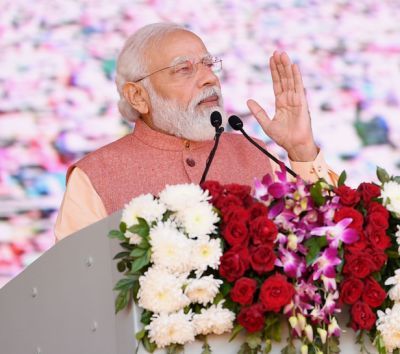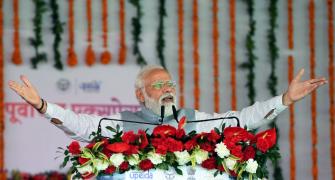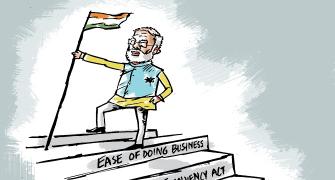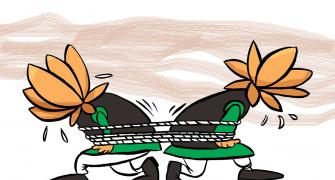Perhaps the BJP will win the UP elections, but that will be a political win and will leave the problems on the ground from the economy to national security to disaffected farmers and minorities intact, argues Aakar Patel.
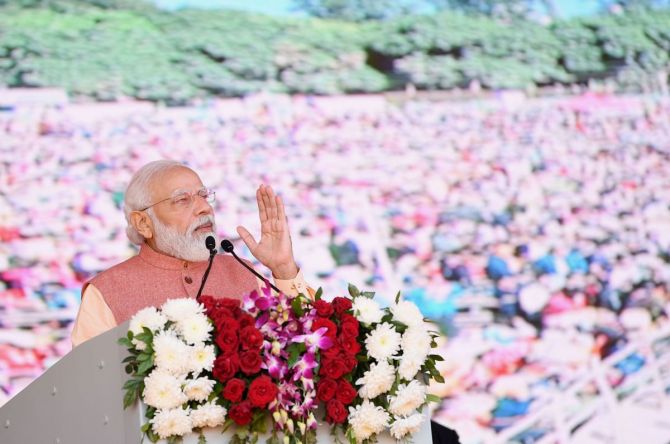
This month marks the beginning of the time two years ago when the government lost its way.
The unusual thing about this period for December 2019 to December 2021 is that before the Modi government thought it was flying high.
It had fixed the three things it had been campaigning for strongly for decades.
The law criminalising triple talaq came on 1 August 2019.
The Supreme Court had already declared triple talaq invalid so there was no reason for the government to criminalise, it but this was done anyway.
Four days later, on 5 August, Kashmir lost whatever autonomy it allegedly had and Article 370 was 'deoperationalised'.
Earlier in the year the Balakot strikes had apparently sorted out India's national security problems.
On 9 November the Supreme Court decided the Babri Masjid issue, which had been pending for three decades, in favour of Hindu groups.
On 11 December, after Amit Shah assured Parliament the day before that a nationwide National Register of Citizens was on its way, the government passed the Citizenship (Amendment) Act.
Four days later, on 15 December 2019, the Shaheen Bagh protest began, sparking a nationwide movement against the discriminatory law.
After this the government has not been able to enforce its agenda and it is striking to see what has happened in the two years since compared to the months before Shaheen Bagh.
Of course, the first steps back came after the NRC was shelved.
Assemblies across India passed resolutions against the NRC.
The last of these was Bihar on 20 February, where the BJP legislators joined a unanimous resolution against what Shah had promised was coming in Parliament.
The Shaheen Bagh protest wrapped up the next month, but victory had been already achieved.
The Delhi pogrom and the fury of figures like Anurag Thakur and Kapil Mishra showed how deeply affected the government was by the setback.
In March began the pandemic and the lockdown flattened the Indian economy.
Per capita GDP went behind Bangladesh, the fiscal deficit was blown and a stressed government passed on the costs of governance to all Indians through extortionate taxes on petrol and diesel.
The effects of the lockdown were felt for the full 12 months of financial year 2020-2021 and we are still to recover from it.
230 million Indians fell into poverty during the pandemic and the unemployment rate which had already reached a post 1947 high of 6% by 2018 remains there.
In June 2020, the farm ordinances were passed during the pandemic.
In September the bills passed Parliament without a division vote.
The farmers arrived at the outskirts of Delhi at the end of November and remain there even today.
The government, of course, has rolled back the three laws but now faces trouble on the issue of a guarantee on the Minimum Support Price.
It is also apparently worried by the fallout of the agitation on its constituency especially among the farmers in western Uttar Pradesh, a state going to the polls in a few months.
In January, the Biden administration was sworn in, after the defeat of Modi's friend Trump in the presidential elections (other friends like Japan's Abe have also departed).
A few days after that India lifted the 17 month Internet blockade on Kashmiris fearing pressure from Biden's democracy.
In May 2020 India was told the Chinese were aggressively moving into Ladakh.
On 15 June last year the two sides clashed with clubs and stones and 20 Indians lost their lives.
The situation remains tense along the border and the government suddenly made peace with Pakistan on the Line of Control and shifted tens of thousands of troops over to the China side.
The problem of national security, assumed to have been solved after Balakot, was apparently not really solved at all.
India's naval alliance with the United States and two other nations (the so called Quad) was demoted this year when the US announced a proper military naval alliance with UK and Australia in the region.
The issue of Kashmir also has not proven to be 'solved'.
The state today has no democracy and is the only Indian state/Union territory without an elected government.
Violence has not come down as we can see from events daily and from the data.
The population has become even more hostile. In effect an army that was tasked with two things: Managing a hostile border with Pakistan and a counterinsurgency in Kashmir is now tasked with three major things, the third being China.
It is not easy to see how the government and the prime minister will come out of this period of slump easily.
The economy is said to grow at over 8% this year but that merely brings total GDP back to where it was before the pandemic, when it had already slowed to a crawl.
Perhaps the BJP will win the UP elections, but that will be a political win and will leave the problems on the ground from the economy to national security to disaffected farmers and minorities intact
Aakar Patel is a columnist and writer and you can read Aakar's earlier columns here.
Feature Presentation: Aslam Hunani/Rediff.com
